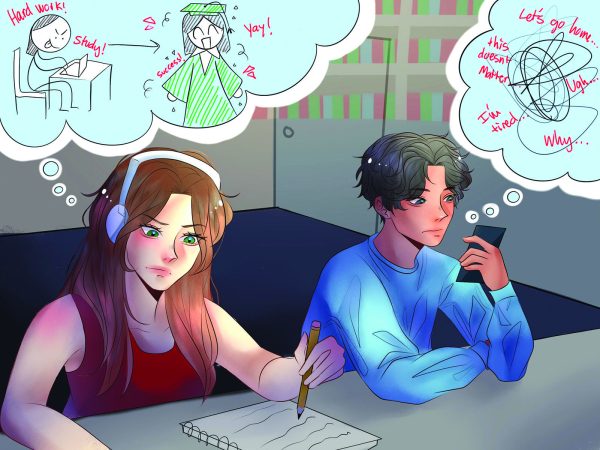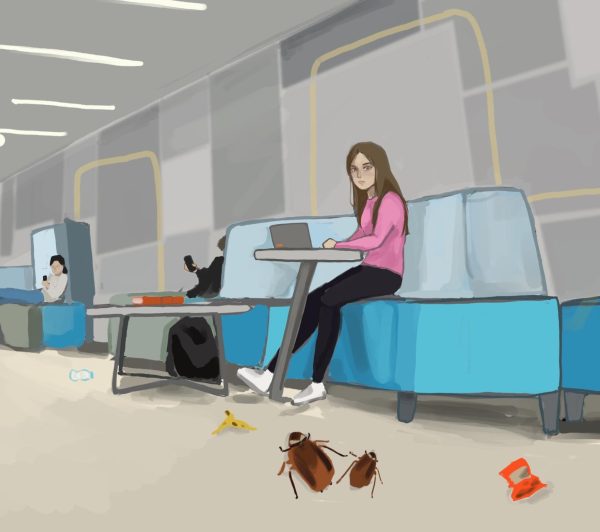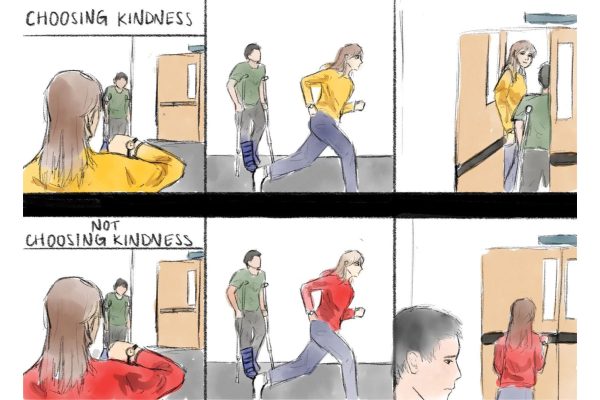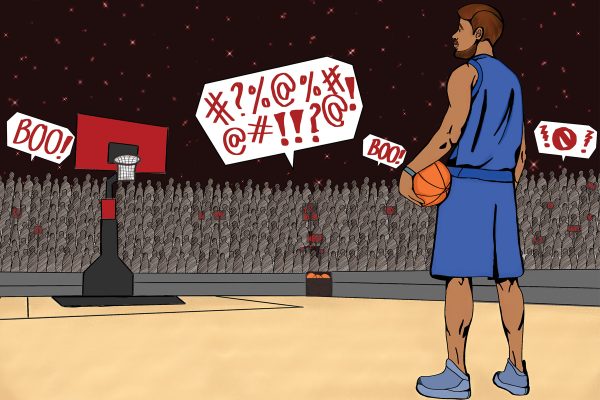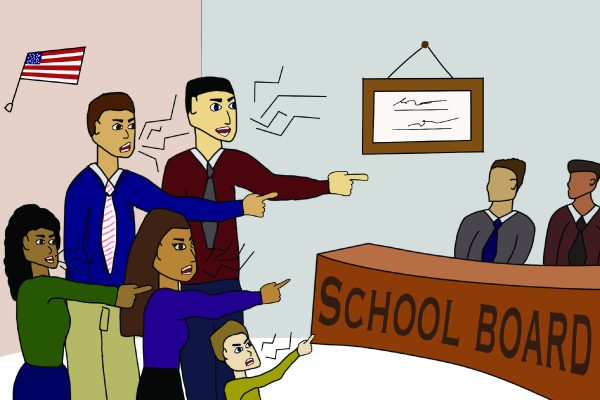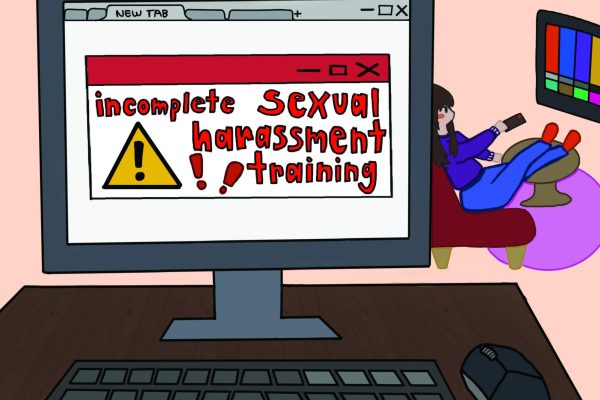A yearning to change our learning
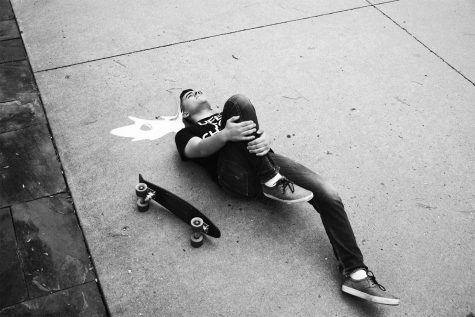
Photo Illustration by Natalie Sandlow
Graphic by Mariel Mudrik
Meet Bob.
Bob lives in an alternate universe where the entire education system is based on one object: skateboards.
From kindergarten to second grade, Bob played with little plastic skateboards along with the rest of his classmates. He rolled them around on the ground, bubbling with excitement.
Then came third through fifth grade. Bob and his peers began to learn about how skateboards work. The wheels mounted beneath the board propel the rider into the wind.
Middle school went even more in-depth. Bob and his friends learned how the skateboard was built. They watched documentaries about how the wood is cut and shaved down to form the deck of the skateboard, the flat surface where the rider stands.
In high school, Bob had the opportunity to actually build a skateboard. From griptape on the deck to the well-greased bearings within the wheels, he constructed his first very own, hand-crafted board.
After these four exhilarating years, Bob went to college where he majored in decks. He learned every little thing about decks, down to the particle level. There were other majors, too. His best friend, Suzie, majored in griptape, and another close friend, Tom, majored in wheels. They all became experts in their respective fields.
Finally, Bob graduated college and started his career. The first day as a college graduate, he hopped on the skateboard he built in high school. On his first attempt, Bob immediately fell off and cracked his head open like an egg in a pan. Regardless of Bob’s tremendous performance in school, he had never learned how to actually ride a skateboard.
Back in our universe, we obviously learn about more than just skateboards. However, like Bob’s situation, the American education system only partially covers the material required to prepare us, as students, for a successful future. The cause of this is twofold. First, we are not applying enough of the academic material we have learned. The level of academic knowledge available at our school is incredible, but it cannot be fully claimed and understood until we apply it. For example, if you finish an electromagnetism unit in Physics, it is also important to try and light up a dark room with a lightbulb and battery.
Unfortunately, not all school lessons can be applied in the real world. Some of these ideas may just fulfill the purpose of teaching us how to think critically or problem solve. Yet these same purposes will be fulfilled by applying the knowledge. If the lightbulb is not lighting, one must problem-solve to find the error in the circuit. Students will be forced to think critically and redesign this circuit until it properly functions. Ultimately, applying the knowledge eliminates the need for these lessons taught for deeper purposes beyond its raw content.
Second, there is a whole realm of education that is often ignored. The collection of real-world and “street-smart” lessons are just as important as the derivative of f(x) and Romeo trying to slide into Juliet’s DMs. In order to be successful, we must learn how to prioritize our time. Understanding that you are responsible for how others perceive your actions, regardless of any deviation from your intentions, is another crucial lesson.
It may be difficult to teach these ideas in a classroom environment. However, whether the class includes roleplay with other students or inviting successful speakers, teaching these lessons can certainly be accomplished. If the school can invest in new classroom technology, introducing more classes like these seems like a reasonable request.
In the meantime, we should be allocating significant amounts of time to activities outside of school, both applying the academic knowledge already absorbed and learning new lessons and ideas that would never surface in any of our school classes. In the long run, you will benefit from this much more than ruminating about your GPA and test scores.
Just whatever you do, don’t be like Bob. Don’t crack your head open.


